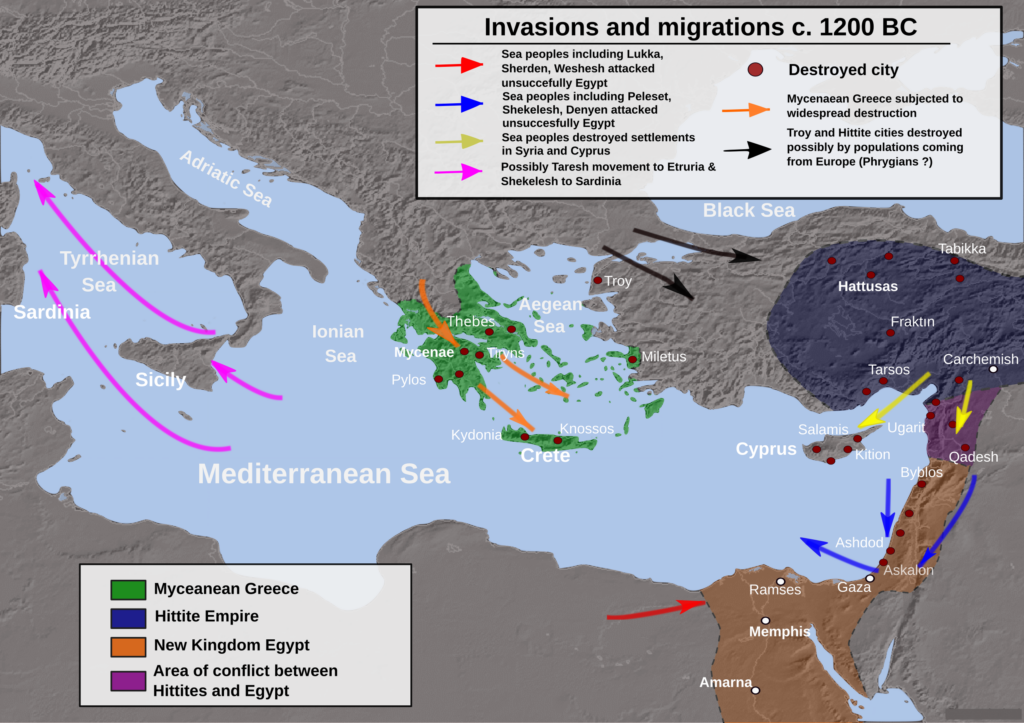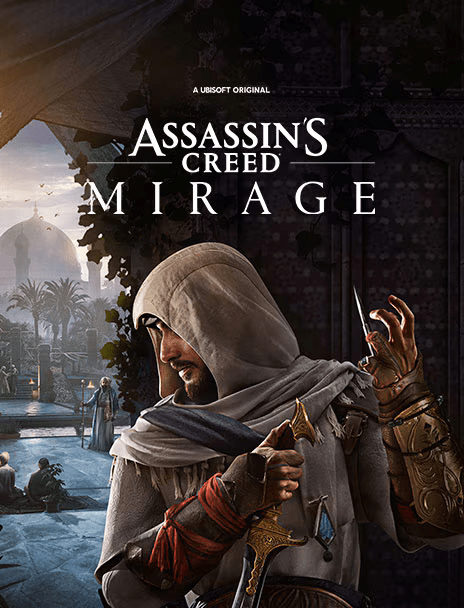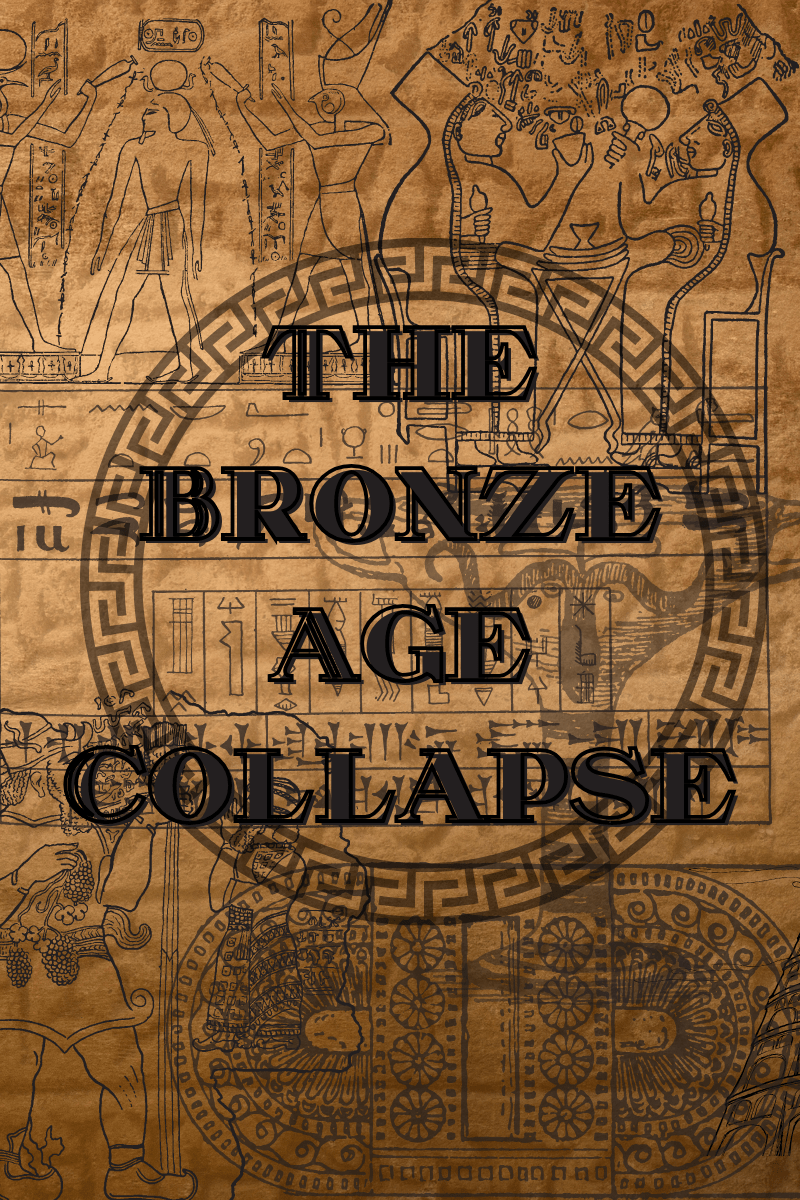Bronze Age Collapse: Assassin’s Creed Idea
Ubisoft should make an Assassin’s Creed game set during the Bronze Age Collapse. Hear me out. This will be such an out-of-pocket post but I’ve been thinking about the incredible potential this time period has for the sort of storytelling that happens in an Assassin’s Creed game for so long I just need to throw it out there.
What is the Bronze Age Collapse?
Archaeologists and Anthropologists will tell you that the Bronze Age Collapse is one of the greatest periods in history that no one knows about. But plenty of people do. A quick YouTube search will pull up hundreds of videos detailing this time period. I am fascinated with it.
So what is it?
The Bronze Age Collapse, occurring from about 1200 BCE to 1150 BCE, was a culmination of events that caused the demise of many historic and once mighty societies. Multiple forces played into the collapse: environmental changes that caused drought and famine, invasions and/or migrations of people namely the Sea Peoples, the destruction of major population centers and historic cities, and disruptions to historic trade routes that caused bronze production to plummet.
Whole civilizations disappeared, written languages were forgotten, and after, the world was thrown into a dark age while whoever was left tried to pick up the pieces of their world and put it back together. It’s wild stuff.
Who are the players here?
The Hittites, Greeks, Babylonians, Egyptians, Assyrians, and all the other interconnected kingdoms of the day were all involved. Some of them survived, in some form. Others completely collapsed.

Why Did the Bronze Age Collapse Happen?
People far more educated than I have so many resources available that I am not qualified to explain the details. I am not a historian, just someone who loves history.
Warfare Changed
Armies emerged that fought with swords instead of spears so they could take on chariots, the tanks of that time.
Sea Peoples
The Sea Peoples were groups of people appearing from mysterious places across the sea. They arrived to burn cities, invade, and cause mass destruction all over the shores of the Mediterranean Sea. Historians now think these people might have been running from drought and famine of their own.
Climate Change
Drought peppered the landscape, and once flourishing farms dried up to dust. This could have been happening for centuries before it was collapse time, but all of a sudden within a few generations the lands that were once fertile and lush were no longer productive.
Fascinating
The fall of civilizations is a fascinating topic that people devote their entire careers studying. And this particular societal collapse doesn’t just encompass the fall of one society, but an entire network of great civilizations that had been around for centuries, all terminating in this one cataclysmic time period. It’s a super interesting point in history to set a story.
Enter Assassin’s Creed
Assassin’s Creed is an incredible IP that can be a launching point for someone to get really into history. I’m talking about myself. I have always found history to be interesting but Assassin’s Creed does something really compelling: It immerses you into the history as part of the gameplay. This makes you feel like you’re a part of the history. You’re surrounded by it. You’re listening to the sounds of the people around you, you’re looking at the markets, the landscapes, the outfits, the people. To me, Assassin’s Creed makes history come alive in a way that just telling a story cannot. And through that immersion, deeply impactful stories can be lived, not just listened to.
And this time period? The Bronze Age Collapse? Legit thousands of stories could be told.

Would this be too similar to Assassin’s Creed Odyssey? Origins?
Assassin’s Creed Odyssey takes place during the Peloponnesian War from 431-422 BCE. Origins takes place in Ptolemaic Egypt from 49 to 38 BCE. The Bronze Age Collapse occurred from 1200 BCE to 1150 BCE, more than 600 years before the time explored in AC Odyssey and a millennia before Origins.
Why Go Back to the Mediterranean?
This region of the world was the birthplace of great civilizations, and there’s so much incredible history to be spun here.
Assassin’s Creed is Alternative History, Remember?
Sure, sure. I get that the people at Ubisoft take real history, and weave some fiction through it to tell their own stories. That’s part of why the IP is a game and not a history software. But what they can do is bigger than that. I have learned an incredible amount of actual history from each AC game that I have played, from the Borgia Italy with the Ezio Trilogy to the French Revolution (bonus: I played the game in French so it was incredible, let me tell you), to the Peloponnesian War. I have immersed myself in both the fiction of the Assassin’s Creed world AND the real history through each game. And I think they could do so, so much with the Bronze Age Collapse.
Ubisoft Knows the Potential
Ubisoft knows how much potential their games have to get people to learn real history. I loved the part in Origins that let you walk around and learn about Alexandria, etc from a purely historical standpoint, with no violence or hidden blading people (though I love that part of the game too!)
In 2023 Ubisoft partnered with the Ashmolean Museum in Oxford England to explore Odyssey’s depiction of Knossos and the Labyrinth of King Minos and the myth of the Minotaur:
Visit the island of Crete in Assassin’s Creed Odyssey and you’ll encounter the ancient (even by Kassandra’s standards) Knossos, one of the oldest documented Greek settlements. Excavated by Sir Arthur Evans in the early 20th century, Knossos was home to the Minoans, a civilization of Greeks that came and went more than 1,000 years before the events of Odyssey. Venture underneath the ancient palace as Kassandra or Alexios, and you’ll uncover the fabled Labyrinth of King Minos, where he hid the mythical Minotaur. While this might be where Odyssey begins to divert from history, the Labyrinth and Minotaur, like most myths, is rooted in reality. In fact, the myth is the subject of the current exhibition at the Ashmolean Museum at Oxford, Labyrinth: Knossos, Myth & Reality.
The museum featured an area with Ubisoft’s depiction of the Minoan palace projected on a screen and an interactive display to explore the area. This wasn’t the first time Ubisoft has hammered into the historical elements in their stories and partnered with museums, they also had a partnership with the British Library for an Alexander the Great exhibition.
A Plea to Ubisoft
So there you have it. Ubisoft people, Assassin’s Creed development teams, please! Think about this idea, it’d be so freaking cool!
Also, one more thing. Is Ubisoft Quebec really where most of the AC games are made? C’est pas juste, ça! Je parle français, je voudrais travailler avec eux!!!







